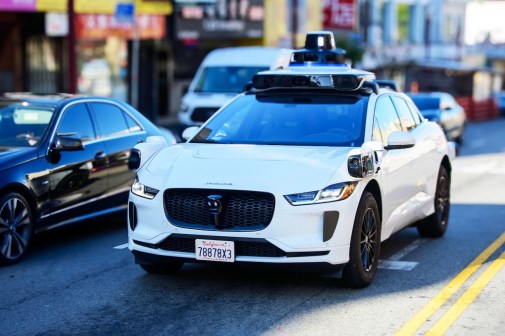Pennsylvania bill aims to set connected car standards, kickstart testing

Pennsylvania lawmakers unveiled a bill that would allow testing of self-driving vehicles — just as Pittsburgh took a step closer to receiving a multimillion-dollar federal grant for a project involving connected cars.
Sen. Randy Vulakovich led a group of other state senators in introducing S.B. 1268 last week. His legislation would set standards for the operation of autonomous vehicles in Pennsylvania and give the state’s Department of Transportation the authority to contract with companies to begin testing the technology.
“Our legislation would be an integral step forward if Pennsylvania wants to be a top competitor to advance economic development in this innovative and thriving market,” the bill’s sponsors wrote in a memorandum soliciting support for the bill. “The legislation would also provide for the needed requirements for the safety and control of autonomous vehicles, vehicle testers and the traveling public.”
But Vulakovich and the bill’s supporters also noted that the bill is meant to boost Pittsburgh’s application as part of the federal Department of Transportation’s “Smart City Challenge.” The department recently named the city as one of seven finalists in the race to earn $40 million in funding for projects focused on connected technologies, and since Pittsburgh’s application involves integrating connected cars into the city’s transportation management network, the lawmakers are aiming to start codifying standards for the technology to smooth that process.
The legislation includes a specific definition for autonomous vehicles as “a motor vehicle that is equipped with autonomous technology that can operate without the active physical control or monitoring of a human operator.” It also allows for the “platooning” of connected cars, which it defines as any “use of equipment, a device or technology that allows a motor vehicle or series of motor vehicles to operate in an autonomous mode while coupled or joined to a lead vehicle via a wireless connection in a caravan or motorcade.”
The bill would require that all autonomous vehicles be registered with the state, and it also lays out a series of safety requirements for the technology. Specifically, all operators of the cars must be licensed drivers and need to “be able to take immediate manual or remote control of the autonomous vehicle in the event of a failure or malfunction.”
[Read more: Lawmakers, officials stress connected car security to protect drivers]
Similarly, the legislation also requires that the vehicles be “equipped with a means to alert the operator to take manual control of the autonomous vehicle if the autonomous technology has failed,” and stipulates that any remotely controlled vehicle be clearly marked.
Additionally, the bill would let the state transportation department set regulations around the use of the technology, and sign contracts with private companies to test the vehicles on state roads. However, those companies would have to prove that they have general liability insurance coverage of at least $5 million before testing can begin.
Any firm testing the technology would have notify the department about any accident involving the vehicles within 10 days of the incident, and the department would then be charged with delivering an annual report on the results of these tests to lawmakers.
The legislation has been referred to the Senate’s Transportation Committee, but it faces an uphill battle to becoming law — the legislative analytics company FiscalNote gives it just a 4.1 percent chance of passing out of committee and earning a floor vote. However, the company notes that one bright spot for the bill is the fact that one of its cosponsors, Sen. John Rafferty, chairs that committee.
Should the bill manage to pass, Pennsylvania would become the sixth state since 2011 to enact a law governing autonomous vehicles, according to an April report by the National Conference of State Legislatures. The group found that only California, Florida, Michigan, North Dakota and Tennessee have passed similar laws, though legislators in 18 states have introduced bills on the subject through last month.
Contact the reporter at alex.koma@statescoop.com, and follow him on Twitter @AlexKomaSNG.






